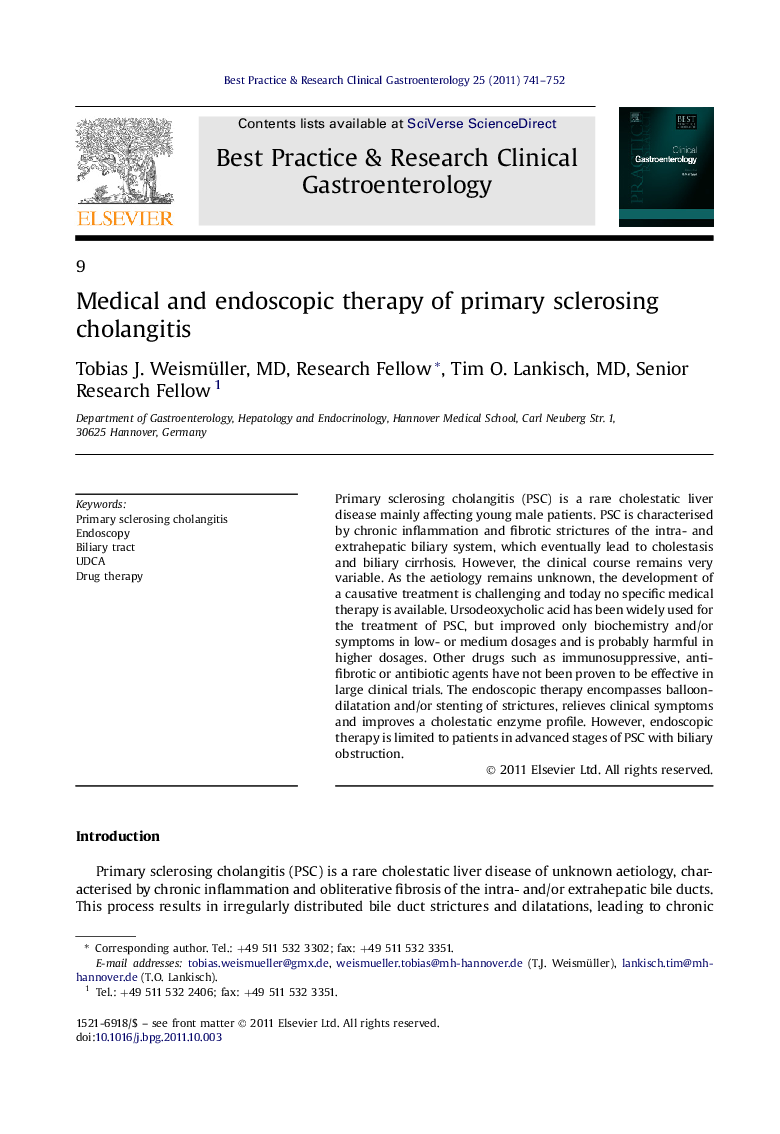| کد مقاله | کد نشریه | سال انتشار | مقاله انگلیسی | نسخه تمام متن |
|---|---|---|---|---|
| 6086514 | 1207222 | 2011 | 12 صفحه PDF | دانلود رایگان |

Primary sclerosing cholangitis (PSC) is a rare cholestatic liver disease mainly affecting young male patients. PSC is characterised by chronic inflammation and fibrotic strictures of the intra- and extrahepatic biliary system, which eventually lead to cholestasis and biliary cirrhosis. However, the clinical course remains very variable. As the aetiology remains unknown, the development of a causative treatment is challenging and today no specific medical therapy is available. Ursodeoxycholic acid has been widely used for the treatment of PSC, but improved only biochemistry and/or symptoms in low- or medium dosages and is probably harmful in higher dosages. Other drugs such as immunosuppressive, antifibrotic or antibiotic agents have not been proven to be effective in large clinical trials. The endoscopic therapy encompasses balloon-dilatation and/or stenting of strictures, relieves clinical symptoms and improves a cholestatic enzyme profile. However, endoscopic therapy is limited to patients in advanced stages of PSC with biliary obstruction.
Journal: Best Practice & Research Clinical Gastroenterology - Volume 25, Issue 6, December 2011, Pages 741-752